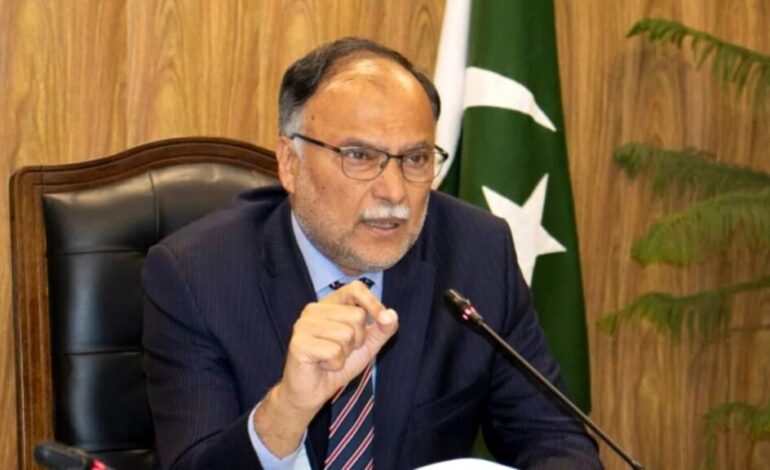
Ahsan Iqbal Highlights Pakistan’s Composure, Criticizes India’s “Insecurity Syndrome” in Press Statement
Ahsan Iqbal Highlights Pakistan’s Composure, Criticizes India’s “Insecurity Syndrome” in Press Statement
ISLAMABAD: Federal Minister for Planning, Development, and Special Initiatives Ahsan Iqbal delivered a pointed critique of India’s foreign and security policies during a recent press briefing, contrasting Islamabad’s “mature statecraft” with New Delhi’s “reactive impulsiveness” in handling crises.
Maturity vs. Insecurity: A Stark Contrast
Iqbal underscored a striking dichotomy between Pakistan and India:
- Pakistan, despite its 77-year statehood and smaller geographic and demographic footprint, approaches challenges with “composure and responsibility.”
- India, despite being seven times larger and boasting centuries of governance experience, exhibits an “insecurity syndrome,” often resorting to blame-shifting over accountability.
Responses to Terrorism: Accountability vs. Blame Games
Referencing the Jafarabad Express terrorist attack, Iqbal praised Pakistan’s introspection, stating, “We acknowledged internal security gaps and vowed reforms, even with evidence of foreign involvement.” In contrast, he criticized India’s handling of the Pahalgam tragedy, where New Delhi “impulsively accused Pakistan without proof, ignoring its own security failures.”
Electoral Politics: Restraint vs. Opportunism
The minister highlighted another divergence in political culture:
- Pakistan: No political leader since 1993 has weaponized anti-India rhetoric for electoral gains.
- India: The “Pakistan card” remains a staple in pre-election campaigns, with leaders and media fueling nationalist sentiment.
Iqbal condemned this trend, calling it a “stark irony” that India, despite its size and resources, relies on “toxic rhetoric and scapegoating” to divert attention from domestic shortcomings.
Call for Responsible Statecraft
Reiterating Pakistan’s commitment to regional stability, Iqbal urged India to “abandon hostility and adopt maturity.” He stressed that sustainable peace requires dialogue, transparency, and accountability—not “knee-jerk accusations or electoral theatrics.”






